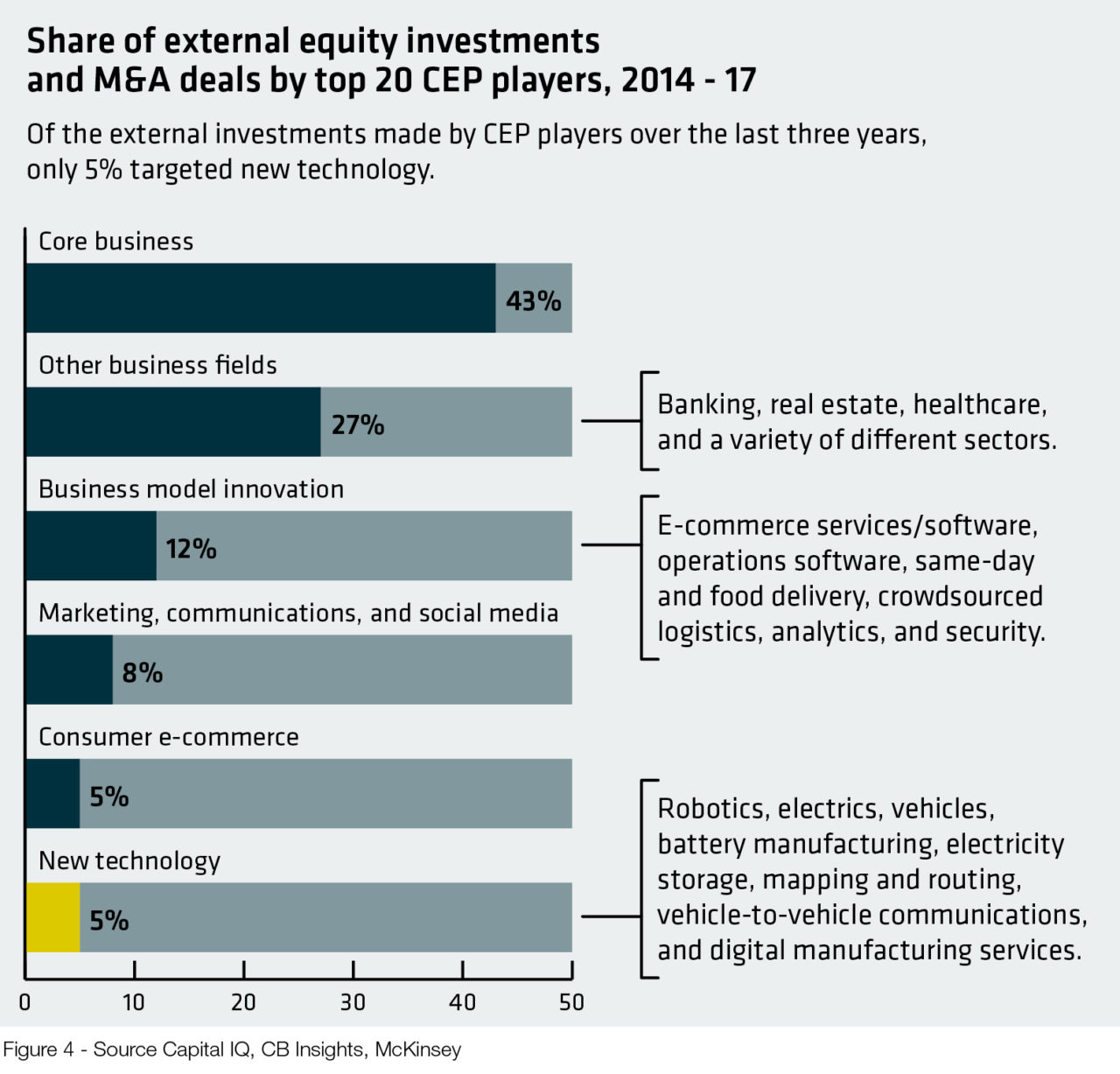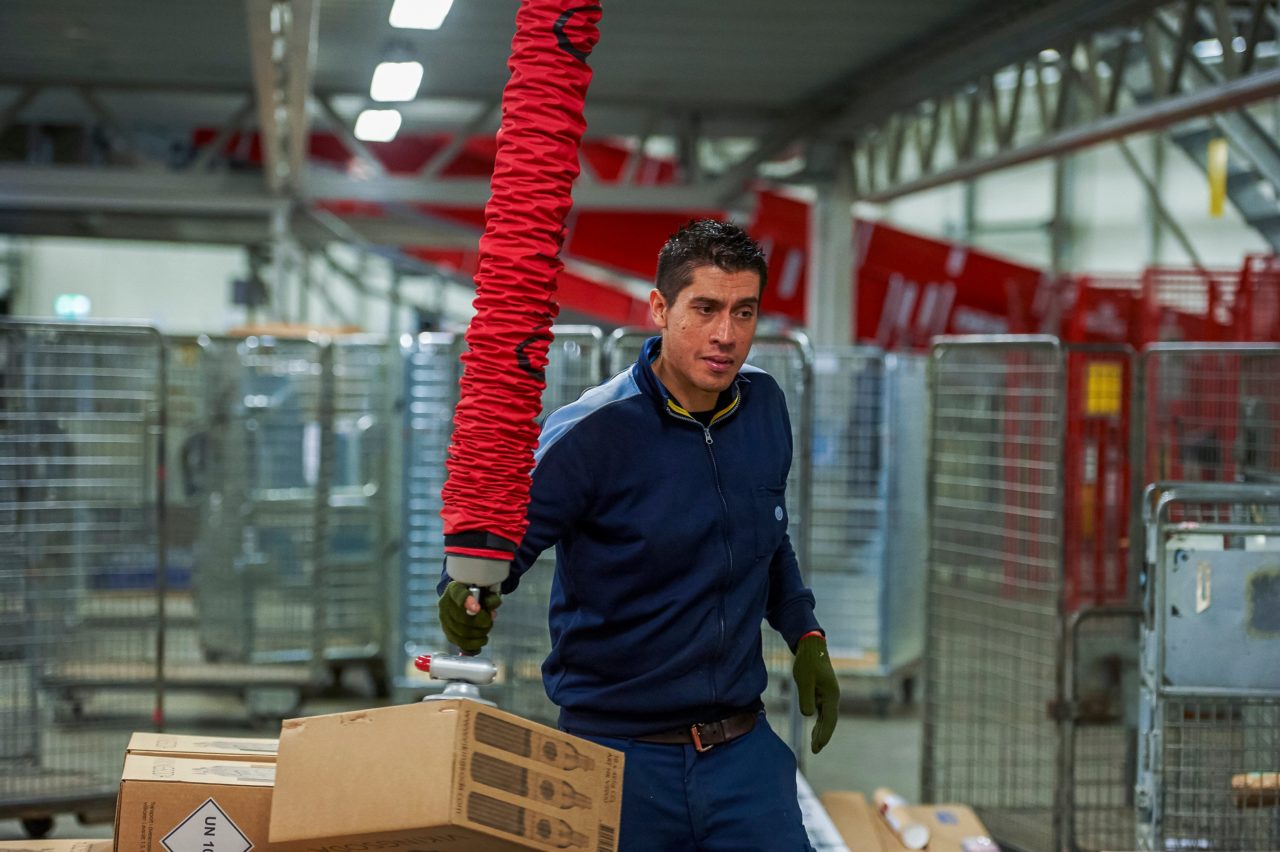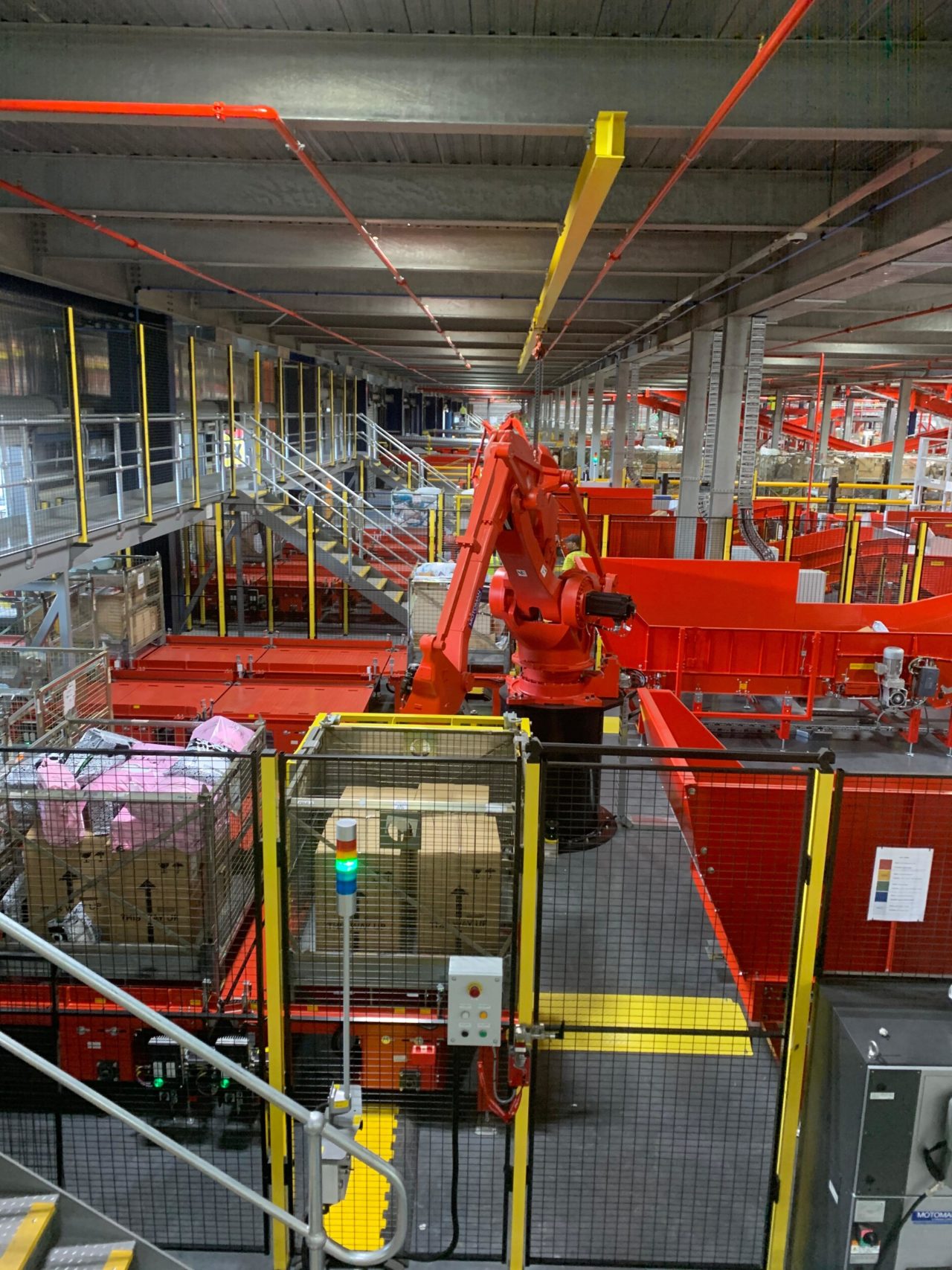Innovation and collaboration
Unfortunately, the lack of proper infrastructure and technology leading to inefficiency is one of the factors hindering the growth of the CEP market.

The CEP sector needs to think about new technology and how it can transform its businesses to meet the demands of this evolving e-commerce landscape. Automation has significant potential to reinvent the parcel industry and solutions such as autonomous delivery vehicles and robotic dogs will become crucial enablers in increasing efficiency and reaching consumer expectations.
Unfortunately, the lack of proper infrastructure and technology leading to inefficiency is one of the factors hindering the growth of the market.
30% of CEP investment went into other business fields such as banking, real estate, healthcare, and a variety of different sectors and only 5% went to new technology and that’s between 2014-2017.
(McKinsey & Company report)
For some CEP players, the lack of ‘digital culture’ and training explain the reluctance to invest in the technological leap required. But even more, developing tools such as robot-delivery technology is extremely costly. In a low margin industry such as CEP, it is inevitable then that rates of investment in technology are low.
As Christian Østergaard, Senior Group Strategist IT-production/IoT/AI at PostNord put its, it takes time for an operator making multiple infrastructure investments to realise the payback.
“It propels the operator into operational mode – focussing only on what’s just around the corner and how to achieve the next three months’ KPIs.” Christian Østergaard, Senior Group Strategist IT-production/IoT/AI at PostNord.

[Source: Capital IQ, CB Insights, McKinsey]
However, at a time when new and innovative players are moving into their domain, CEP companies have to start planning to invest more of their annual revenues in technology. If they don’t, they will soon risk being left behind permanently by innovative thinking and leaner and smarter processes. A string of startups have already entered the business, promising lower costs and greater efficiency through the use of technology. This is especially occuring in the costly last mile where availability is matched with delivery through use of the shared economy. Even industry customers are entering the market and using technology to find ways to improve efficiency better than their service providers can.
CEP businesses need to use their peers. While traditionally, businesses were only interested in seeing their own environments working, we are witnessing a push away from this outdated model. In terms of data analytics and AI, industry players are in active conversations with each other, says Østergaard, about what is working, what is not and what is being sampled.
This is already happening, says PostNord’s Østergaard, especially in last-mile delivery. Companies such as FedEx and DHL have been partnering with national postal companies and small local players for many years. With increased connectivity, it is now possible for CEP operators to communicate across the supply chain and to collaborate more effectively with each other.

Market players operating collaboratively, rather than as stand-alone operations, can achieve huge savings if they are all connected. As Østergaard says, however, certain conditions will need to be put in place, including: some form of standard interfaces and protocols; synchronisation of hubs and networks across transport systems; and IT applications that operate interconnectedly.
To compete, CEP companies need to partner with innovators to reimagine their role in the ecosystem. Christopher Kernahan of Pacific Consulting Group believes CEP operators need to be incubating the next generation of companies and learning from them. Rather than reactively adapting to these potential disruptors, he says, CEP operators would be better off taking control. This means implementing structured programmes of incubation where startups would get access to parts of CEP operators’ datasets and networks. In return, the collaboration would help build the CEP platforms to make them more valuable.

When it comes to innovation, mindset counts for everything, says Christian Østergaard from PostNord. For the CEP industry, this means moving to a manufacturing mindset. Today’s parcel production and delivery is less about providing logistics than operating as a manufacturer.
Industry 4.0 and its wave of digital transformation is reshaping all manufacturing industries and is going to change the CEP industry considerably over the coming years. It represents an intersection of machine automation, processes driven by real-time data and technology-enabled workforces – brought together with enterprise- wide connectivity.
“If you think of car manufacturing plants today, one no longer expects to see people. One expects to see robots. Sortation processing should be no different.” Christian Østergaard, Senior Group Strategist IT-production/IoT/AI at PostNord.

Massive changes in consumer behaviour, e-commerce trends and e-commerce explosions brought about by COVID-19 gave CEP businesses reason to pause, learn and adapt their processes to meet the environment they faced.
Modern sorting centre optimisation takes CEP companies some way in meeting this heightened demand. However, this alone will not keep CEP operators ahead of disruptive players who are looking to capture market share – particularly in last-mile delivery – through innovative technological solutions. CEP businesses must bring about digital transformation in their operations, processes and solutions in order to remain relevant. This can be in collaboration with startups in the sector who may be able to improve upon their platforms or with their own customers in the form of data sharing and gaining access to their production plans.
CEP companies hold immense power in the vast amount of data they have or can gather. With the assistance of data analytics, machine learning, cloud solutions and a preparedness to work together with their customers, startups and their sortation system suppliers, CEP businesses are actually very well equipped to bring about the transformation required to meet evolving e-commerce demands and expectations.